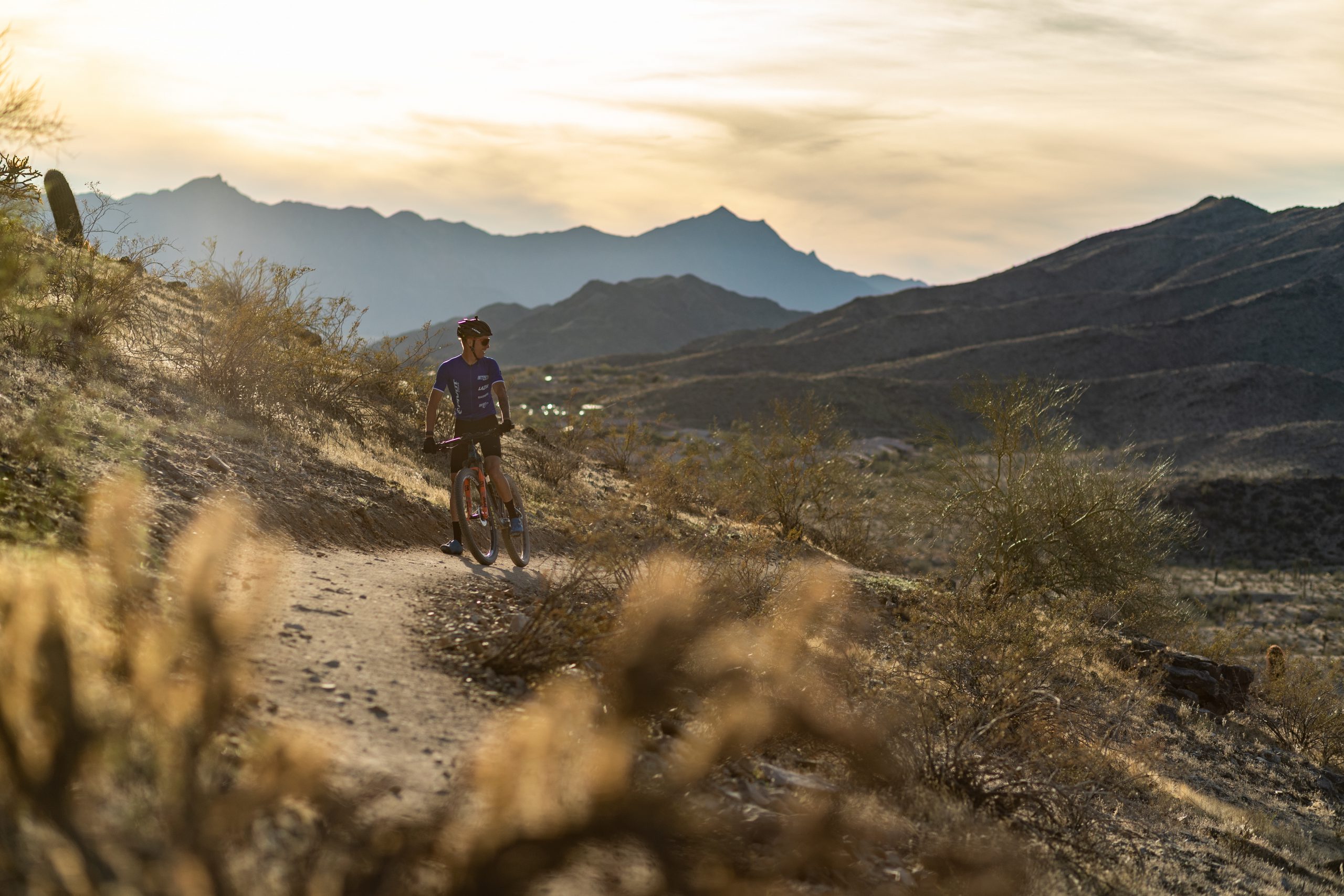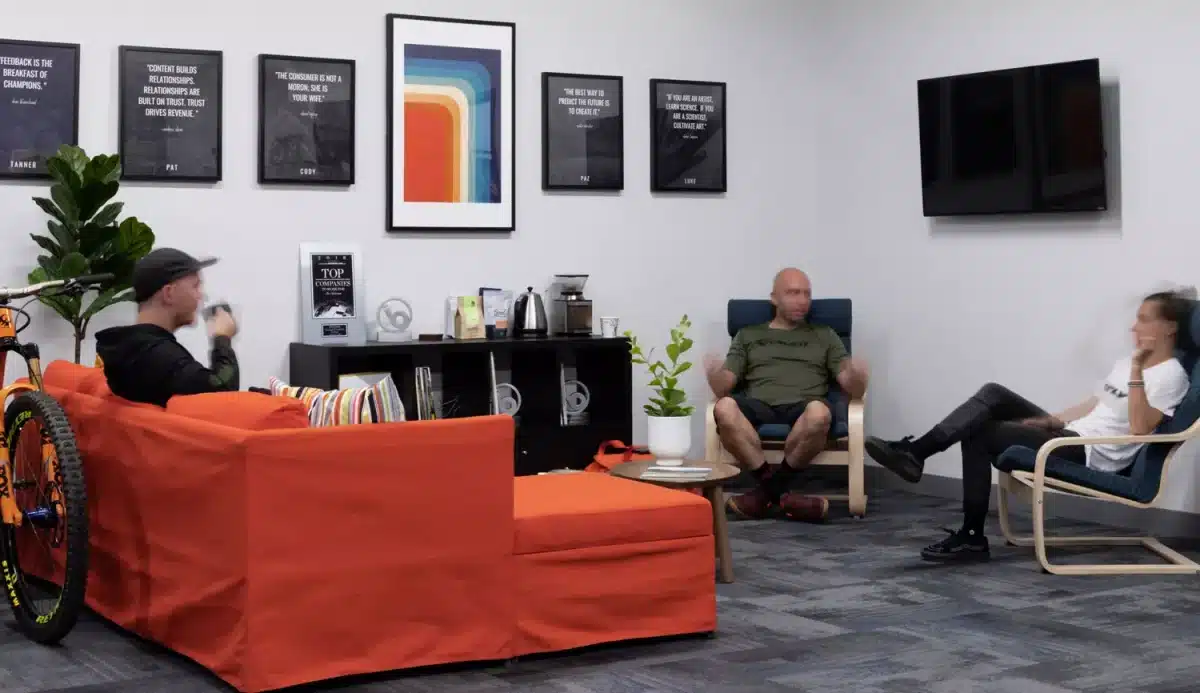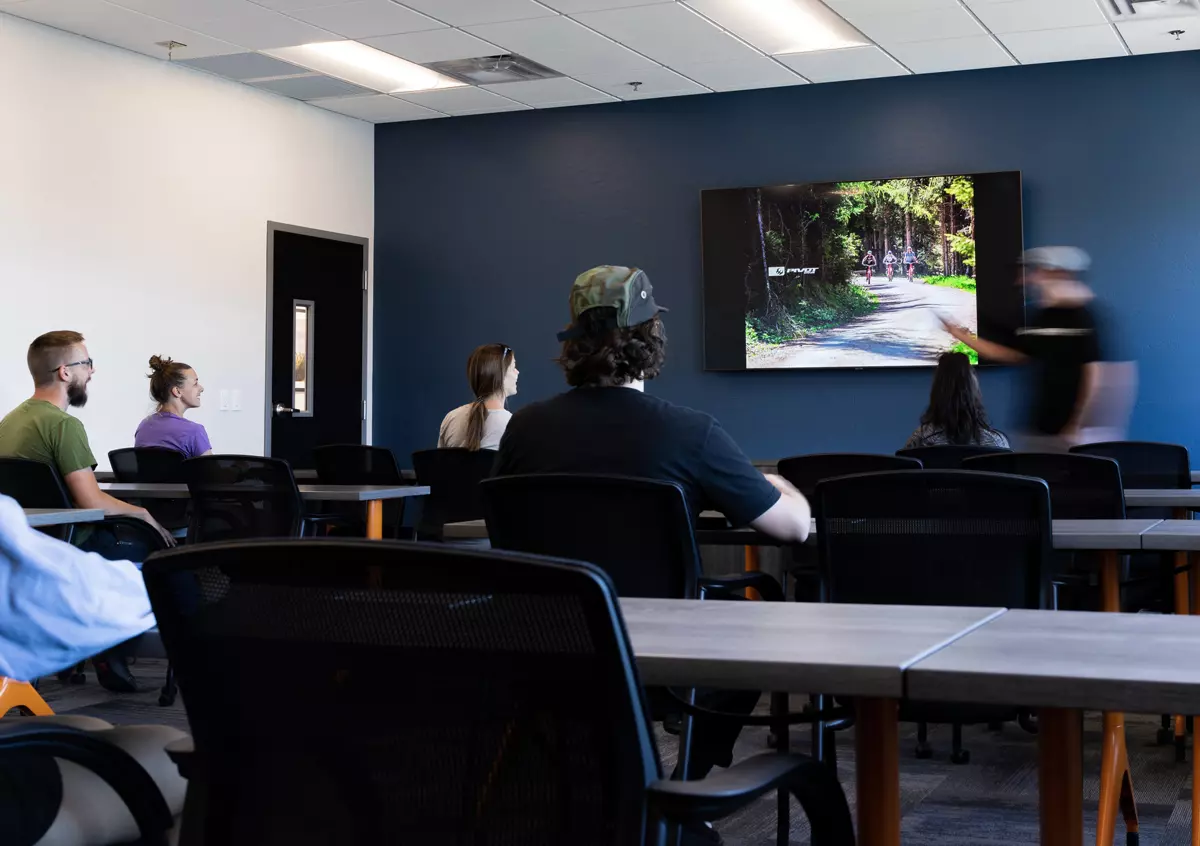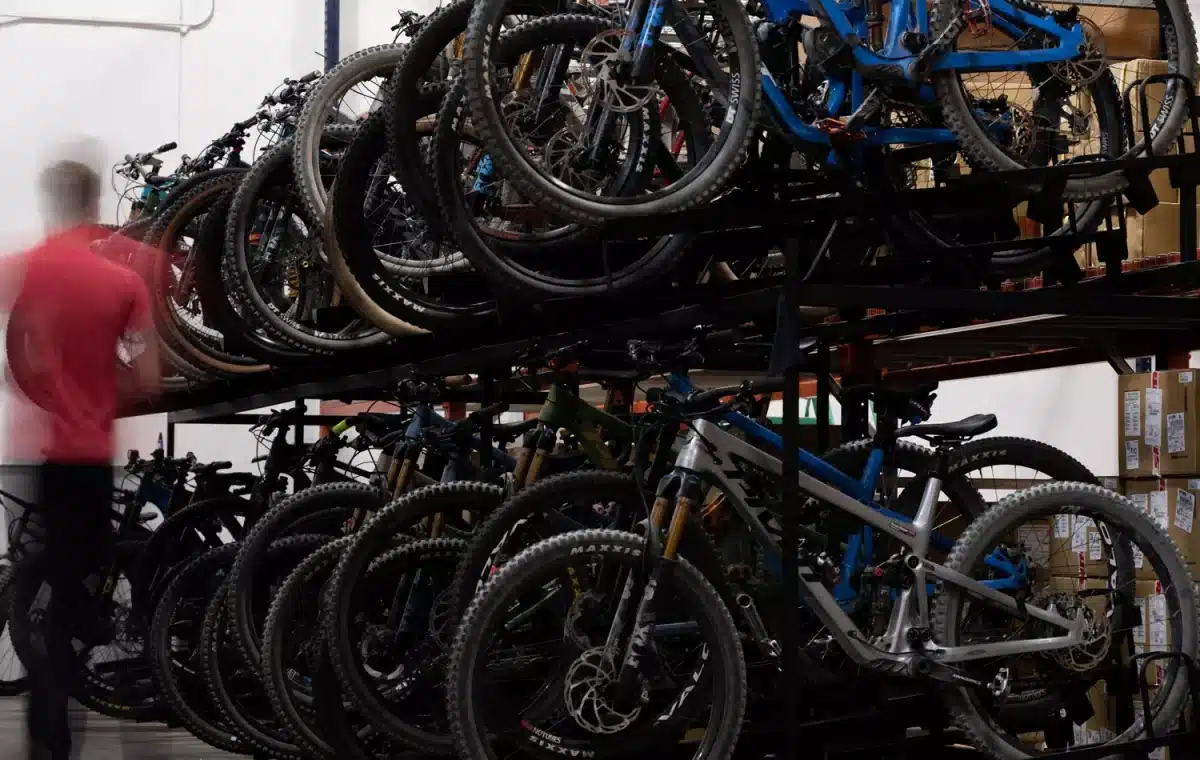Uphill Battles
Mental Health & Mountain Biking
Long-time Pivot endurance athlete Taylor Lideen recognizes Mental Health Awareness Month by shedding light on how mental health battles have affected his life and riding.
Mental Health: something that means and may feel different from one person to another but without a doubt exists and should be taken seriously in every individual’s life. There does not always need to be a traumatic life event to cause a mental slip. In some cases, it just happens. In my case, it sure went that way.
From the incredibly early age of around 8 years old, something in my head felt “off,” in a way that only I seemed to know. I remember having deep bouts of hopelessness, darkness, and incredible sadness for almost no apparent reason soon after a family trip to Southern California. As a young child, I was not in tune with myself enough to realize this was the first alarm I was dealing with mental health issues. I should have spoken up sooner, but I did not.
Fast forward to being a young adult, where I have come face to face with some of the darkest things I could ever imagine. I always made an excuse for what was going on. I sheltered in the fear of letting others in on this big secret in my life – I was experiencing severe depression and anxiety. I hid it so much it caused major health issues in my life resulting in two separate surgeries on my pancreas, each with a one-week stay in the hospital. I thought I was dealt a bad card with constant GI issues growing up. The “stomach problems,” were persistent and seemed to peak at the most inopportune times. It started to give me a reputation as “the guy with the bad stomach,” and I would regularly blame it on something I ate or not having drunk enough fluids.
I was seeing doctors on a regular basis,
being prescribed medication that never seemed to work. Ultimately, I rebelled against my doctors, feeling helpless and hopeless. I believed the stomach problems were going to exist for the rest of my life. I would regularly drop to a super unhealthy weight because of my stomach issues, consistently taking two steps backward. For a brief time, I was on different antidepressants and rebelled against those as well, stopping them cold turkey, and making my whole situation much worse. I wanted to cry out for help, but simply did not know how, and did not want to inconvenience others.
Looking back, I realize my life could have been much different had I reached out – or even cried out – during dark times. I now realize most of my health issues were caused by my horrendous anxiety and depression, and I had real stomach issues that needed fixing (majority through my diet) but so much of this could have been handled by reaching out to someone I trusted. The only problem? I did not know how to reach out and was terrified to act.
I have come to experience what, my wife, Mary and I call “episodes,”
that last 2 to 4 weeks, and they are the most terrifying experiences I have ever had.
Alarm bells went off a year ago when I had extreme thoughts of not wanting to be here anymore. I was open and honest with Mary about these. They terrified me. I was experiencing anxiety attacks on a regular basis. I was confused and exhausted. I knew I needed help. I had to confess; I was not willing to reach old age if these episodes continued. I never wanted anyone other than Mary to know what I was experiencing. However, I learned by speaking about them openly, I not only help myself, but also others.
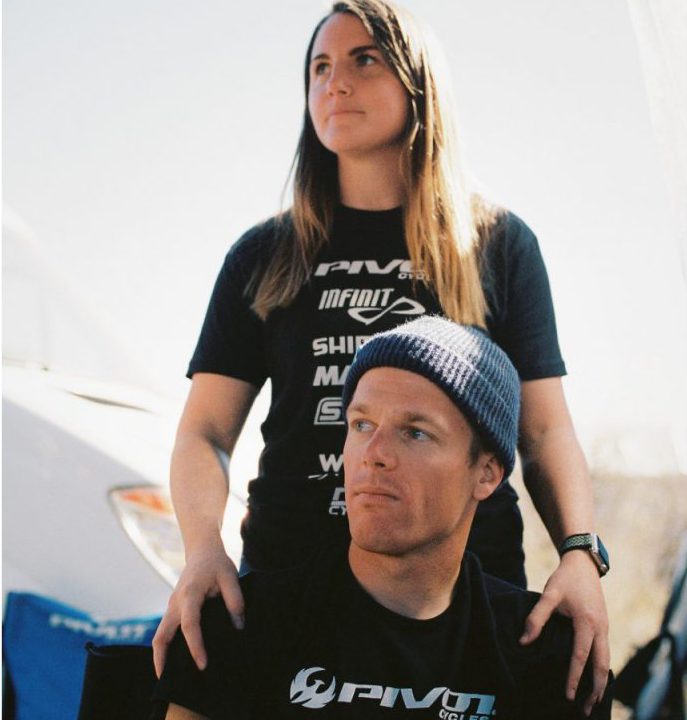
I finally sought professional help.
My mental health journey had basically ended at a young age when prescribed antidepressants. The medicine “didn’t work for me,” and a psychologist made me feel 100x worse than before I visited. I was pretty resistant to traditional approaches when I first began reaching out last year. I felt better when Mary calmly and clearly explained the different approaches, and so we met with two different psychiatrists to figure out which approach I preferred. It was important for me to realize this is MY journey and I can make decisions. I started to come around. The psychiatrist helped me understand I was experiencing “panic episodes,” caused by mounting anxiety/stress tumbling into a negative spiral. We agreed on a treatment plan, and I am grateful to share that I am making progress. I see my therapist weekly and am making connections I never knew existed. Now to share how this all ties into the bike…
I thought I knew what it meant to be a professional cyclist –
but the biggest key to any level of success is having your mental game dialed. I was finding myself struggling to even finish training rides because of the immense amount of pressure I put on myself, let alone being able to toe up to a start line and hit “go.” One major takeaway I had from a therapy session was the term bilateral stimulation. This is when you have a certain rhythmic left-right pattern to follow – such as moving the pedals on the bike. This was profound for me, as I realized the only time I FELT good was when I was pedaling my bike. The stress I added about my PERFORMANCE on the bike was where things started to go south. It was sort of a double-edged sword, right? The bike healed me, but it also created a major level of anxiety.
Because I have my physical healing dialed in,
I am able to focus on mental healing. I am proud to say I am looking forward in a way I never have been able to before, despite the fact the journey is far from smooth. I never thought I could be a person who felt calm, peaceful, and light. Little by little, day by day, I get pieces of light.
For anyone struggling,
or if you know someone who is going through a rough time, I want to speak directly to you for a moment: You have support systems ready and willing to help you.
It can be incredibly intimidating to reach out to someone – trust me, I absolutely have been there. Even talking to those with whom you are closest can seem overwhelming. You can do it. Be kind to yourself. Be gentle with yourself. Allow yourself to be present in each moment and remember to look up because I promise things do get better. It takes time but bright days are ahead. You are stronger than you think – both physically and mentally. You are also loved immensely.
-Words by Taylor Lideen
Q & A with Taylor –
Q: Is there a before/after feeling to your riding after starting to treat these struggles?
A: I would say I enjoy the process a lot more. I am someone who has never been able to “meditate” but when I am on my bike, I am able to feel calm and just enjoy the moment, especially on the longer rides. My headspace still feels fragile and it’s a constant practice in my daily life as well, but I am dedicated to it.
Q: Is mental health in the professional cycling world talked about much? Any stigmas?
A: It is becoming a lot more common place that’s for sure. I think a lot of people are realizing now more than ever that our physical health and conditioning is an obvious thing that needs attention for cycling, but we must give equal (if not more) attention to our mental health.
Q: Is this a recent shift or has it always been a discussed point of importance?
A: I feel it has been a relatively recent shift. With social media and the ability to share personal stories I see people more willing to share both the good AND bad. I really appreciate this because it sets the stage for open dialogue.
Q: I hear you are going into Garmin UNBOUND Gravel with a bit of a different mind-set, would you care to elaborate on that?
A: Absolutely! I am someone who tends to put a lot of pressure on myself in both my daily life and my cycling goals. I have learned that this isn’t necessarily the best approach for me personally, with my past experiences. I now do my best to make the first goal for any event to go out there and enjoy the experience. I would be lying if I said I still don’t expect a lot from myself, especially for a races like Unbound Gravel, but the race will go on as it is meant to, and I am in control of myself and myself only. Cycling has always been a sort of meditation for me, even if I didn’t realize it at the time. When I can put myself in that type of mindset, that the race is an opportunity to positively connect with myself, I feel there is essentially no room to “fail,” only opportunities to unlock a healthier headspace.
Q: How do you deal with pre-race anxiety now? Have you learned any techniques?
A: I am learning more and more about myself each day and with each event I participate in. I’m doing my best now to just take things in stride prior to big events – for example check all of the boxes I can control like nutrition, bike setup and expectations. Showing up to the start line with a positive mindset and controlled focus, all while giving it MY best on the day is what I have control over. So, practicing this and thinking that way is something I am really working on. It’s a work in progress but I am excited to see what comes of regularly practicing it.
Q: What would you say to people who believe you can simply work-out to get rid of anxiety and depression?
A: I would say everybody’s struggles are relative and important. I think some people assume it’s just a mindset thing, but I know from my past experiences it has brought me to my knees and into incredibly dark places. It is absolutely something that needs attention, and everybody’s journey is different. We can never discount the struggles someone is going through so approach them with care and generosity and be open to listening. I absolutely believe that cycling isn’t a cure for crippling anxiety and or depression, but it has led me to a place where I can better manage it.
Q: What was the initial reaction when you spoke up about your mental health struggles?
A: I was terrified. I have hidden this from so many people for the longest time out of fear from being vulnerable or making my problems somebody else’s. I was afraid that people would look at me differently if I shared the places I have been in my head and the thoughts I have had. I was even worried about sharing some pretty personal details with Mary at first. I recall one time when I had her watch a documentary with me where they touched on the topic of suicide because I didn’t know how to actually bring it up to her. I was desperate to tell her about what was going through my head but didn’t want to scare her.
From the external perspective, I would say the response has been overwhelmingly positive and supportive. Hearing people share a speck of their own personal struggles really opened my eyes. When I am in a dark place I always feel alone and that nobody else goes through struggles like this, but it was refreshing and helpful to know so many people struggle themselves and have found ways to cope. I have touched on this topic, not in great detail, with some sponsors and I am just blown away how they simply want the best for me and happiness to be at the forefront of my life with or without a bike. They have been incredibly supportive of me sharing my story, and willing to help however they can. Grateful doesn’t even begin to describe how I feel to have such an understanding team and I do not take that for granted.
Q: As an athlete who spends so many hours riding and training alone, do you think cyclists are more prone to mental illness?
A: I can’t speak on behalf of anyone else but for me I would say it has played a role. I spend a lot of time diving into my own head throughout the day, so when I am on the bike alone, it can lead to some serious mental conversations. The bike is ultimately an extremely healthy outlet for me, but it is all in the way you control your outlet. I am learning how that applies to me in a healthy and progressive way. I have learned a lot about endurance-style athletes and their stories about their mental health issues align pretty closely to mine. Longer rides or events usually spark some pretty difficult conversations with myself that I have to work through in addition to the ride itself.
Q: Have races had a triggering effect for your episodes?
A: In some ways yes. At 24 Hours in the Old Pueblo in 2020 I had a full-on mental breakdown towards the end of the race. I was in a panic episode on the bike and it was a really unpleasant experience, to say the least. I was honestly embarrassed at the time but since then, and oddly enough, I am grateful I went through that. It highlighted some things going on that I never paid attention to. In the past I have had more DNF’s than I would like to admit from stomach issues that I feel were brought on by anxiety symptoms. Feeling more controlled going into events does bring my anxiety down a bit but it’s something I always need to pay close attention to.
Q: Was there anyone, who you looked up to, that spoke out about mental illness that inspired or pushed you to speak out as well?
A: David Krimstock had a major impact in my life. David was one of the humblest and kind people I have had the pleasure of meeting and riding a bike with. David was so open about his story and struggles with mental health issues and addiction, and I looked up to him so much for this. I feel incredibly fortunate to have known David and been there just to listen when he was going through dark times. It really made me realize how precious life is and how darkness can really come at any moment. I think about David a lot and just wish I were able to formally thank him for being so open and honest about his story.
